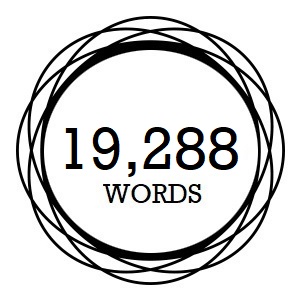19,288
 I’m starting immediately with the lie: last week I wrote, I can live with rejection.
I’m starting immediately with the lie: last week I wrote, I can live with rejection.
I can’t – not really. I get on with it, because that’s what you need to do. If I’ve sent a short story or article out and it’s been rejected, I might give it another read when it returns, then send it out elsewhere. A book obviously is too big to treat like that, but if it’s been rejected from a number of places, I might earmark it as something to revise when I have time.
But, as much as it’s a reality of writing, rejection hurts. I write, I invest myself in this project, this project is me, and somebody says it’s not good enough. That means I’m not good enough. That feeds into all the insecurities. The insecurities grow. I’m sure it happens to most. And if you’re not careful, the insecurities can devour you.
Having been on the other side of the submitting process (when I’ve edited anthologies) I understand that, sometimes, something can be rejected for reasons that have nothing to do with the writing. The story might be good, but we might’ve already had a similar story. Or tonally the story mightn’t fit with what we want to do. There are other possibilities along similar lines.
And I’ve seen stories we rejected pop up and be published elsewhere, or even place in competitions. So there’s a level of subjectivity that’s going on also. It’s not to say one of us was wrong in our taste and one of us was right – it’s just to say that we have different tastes. And that’s art. Everybody likes different things.
But, when I’m the submitter, I don’t know any of that. I only know the insecurities …
Is the writing not good enough?
Is the story idea stupid?
Is it both?
The bulk of the time, you won’t get any feedback from wherever you’ve submitted. Most rejections are form. E.g. Thank you for your submission. Unfortunately, this isn’t quite right for us. We wish you all the best with your writing in the future. All they do is fill in your name.
Sometimes, they might provide personalised feedback, which suggests they liked something enough they wanted to connect with me. One publisher liked Just Another Week in Suburbia so much that while they rejected it, they asked me if I had something else to send them. (I did. They rejected that, too. They didn’t ask for anything more.) Another publisher rejected a manuscript, but told me while he knew he wouldn’t be taking it on he had to finish it to find out what happened. He then suggested some other publishers I could try. (I already had.)
These are the bittersweet rejections. They’re encouraging, but they’re still rejections. Your writing is still going no further.
In the decades I’ve been writing and submitting, I’ve also accumulated some downright comic rejections. One big publisher once addressed me as ‘Leo’. Dear Leo, their letter began. A journal emailed me a glowing personalised rejection – the only problem was it wasn’t addressed to me. I’d gotten somebody else’s personalised rejection. They then sent me another email, apologising for sending me the wrong rejection, then not long after that, sent me a form rejection. Another publisher sent me a rejection, although I had nothing with them. I emailed them, joking I must be doing well to be rejected when they didn’t have anything of mine. They responded with an apology, and said the last time I’d submitted (six months earlier) it hadn’t been checked off that they’d responded, so they were doing it now. I don’t even know how that works. Another journal rejected a short story I wrote, emailed me back several days later to say they actually would accept it, then emailed me a week later to say, no, they would be rejecting it after all.
I won’t give names away in relation as to who these places are, but they’re all established, big and well known. So it’s not like it was some fledgling publisher going through teething issues. As an aside, I’m not embittered towards any of them – it does become funny, after a while.
That’s the writing life, though.
You need to learn to laugh at it.
